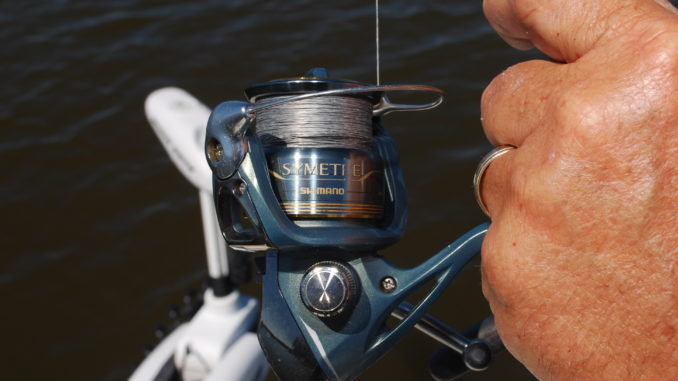
Anglers don’t have a very long season to catch keeper trout close to the landing at Cypremort Point, but when it’s on, there’s no place better.
Steve Smith is a fanatic about the line he uses. I asked why he uses spinning reels, when so many other guides would be lost without their baitcasters. His answer was simple, but led directly to his passion about lines.
“I use spinning reels for three reasons: no backlashes; they allow long casts; braided lines are kinder to spinning reels than to casting reels,” he said. “But the line is more important to me than the reel used to retrieve it.
“Braid has zero stretch. Mono stretches 1-inch for each 36 inches out. It’s amazing that you can even set the hook with mono. With braid I can feel the most subtle bump. A lot of the times trout will grab and eat the bait. But on other days the bite is almost unnoticeable.
“Many anglers, especially old timers, say they don’t need braid — just change it a lot. Braid isn’t like that. It doesn’t wear out. You use it until you run low on line on the reel.”
Smith uses 10- to 14-pound-test Berkley FireLine. He insists that there is no need for heavier line, maintaining that he has never lost a fish due to line failure since he has begun using this line. He adds that the smaller diameter of the line also allows the bait to act more naturally.
He is particular about leaders too, using “about a 3-foot piece” of 18-pound test fluorocarbon.
“It provides a little forgiveness to set the hook,” he notes, “and it is completely invisible.”
He attaches the leader to the line with a direct knot rather than using a swivel. The jig head is tied to the leader by making a small loop with an overhand knot and then tying an improved clinch knot above that. The loop allows the jig head to move freely during the retrieve.
Smith’s obsession with his line is driven by his most important recommendation to trout fisherman who use plastic-tipped jigs.
“Never lose contact with your bait,” he said. “Trout usually hit a jig on the fall, when the most slack is in the line.
“The bite can be just a faint tap.”